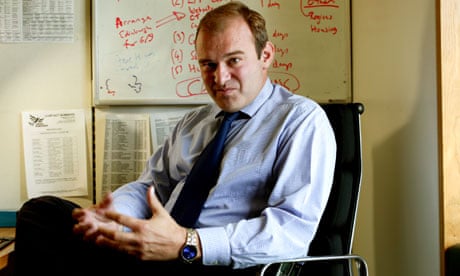Employers will no longer be able to force staff to retire at 65 from October, the government announced today.
Ed Davey, the employment relations minister, said the phasing out of the default retirement age was "great news" for older people, business, and the economy.
He also claimed that far from hurting the chances of young people getting jobs, the increased flexibility for older people to stay in the jobs market would boost the labour market overall.
The move to phase out the default retirement age (DRA) was first proposed by the coalition government in July last year and has now been confirmed following a consultation process.
The change means that from 6 April, bosses will not be able to issue notifications for compulsory retirement using the DRA procedure. Between 6 April and 1 October, only those people who were told before 6 April, and who are due to retire before 1 October, can be compulsorily retired using DRA.
The decision was hailed by trade unions, but the Institute of Directors has criticised the deregulatory measure – which featured in both the Conservative and Liberal Democrat election manifestos – claiming that it will reduce flexibility for employers, even though fewer than a third of companies still insist on people retiring on their 65th birthday.
Officials said the change was being phased in between April and October, giving firms time to prepare and change their human resources policies.
The move will make it illegal for firms to force out older workers if they are still capable of performing, while those who want to retire will still be allowed to do so.
Davey dismissed suggestions that the move would further penalise young people, amid figures that suggest that they have found it harder than other groups to find jobs during the recession. The minister said that evidence both here and abroad, in the "many other countries" which have already scrapped the fixed retirement age, suggests that more people in the labour market means there is "more activity, more income, more growth".
Davey told BBC Radio 4's Today programme : "I'm afraid those people who seem to think there is a displacement between young and older people here firstly are not reading the evidence and secondly they have a very old fashioned approach to labour supply as though there is a fixed amount of jobs in the economy. That clearly isn't the case ... this will actually boost the number of jobs in the economy."
The Liberal Democrat minister appeared to have little sympathy with employers who have called for changes to employment legislation to make it easier to sack people on the grounds of incapability, alongside the abolition of DRA.
Guidelines being published today would reassure employers they will still be able to conduct performance appraisals and fairly dismiss staff found to be no longer capable of doing their jobs effectively, said Davey.
Fair dismissal rules were already enshrined in legislation and it was about people having "grown up mature conversations" with their employees about their performance, he added.
"While there are some costs to business – and we have looked at them very carefully and listened to business – I think this is really beneficial and should not be the problem some people suggest," said Davey.
There are already around 850,000 workers aged over 65 in the UK, and there is no evidence that either performance or productivity suddenly declines after the age of 65, said Davey.
"Many older people have skills and a huge contribution to make to businesses and those businesses that have got rid of fixed retirement ages find it very beneficial. They have seen it boost their business, not have a negative effect. People are living longer, having healthier lives and they have a lot to contribute."
The TUC general secretary, Brendan Barber, welcomed the move.
"This will stop employers from dismissing people on an arbitrary basis just because they have reached 65," he said.
"Employees should be judged on their ability to do the job, not their age."
The announcement coincides with the publication today of the pensions bill, which includes raising the state pension age to 66, as announced by the chancellor, George Osborne, in last October's spending review.
Companies are also to be required to automatically enrol their staff in pension schemes, a move expected to force employers to reduce their contributions for existing members.
Pensions expert David Robertson, of the Association of Consulting Actuaries, said research indicated many large companies were considering "levelling down" their contributions as a response to auto-enrolment.
He said: "A lot of big firms are looking at levelling down their contributions because they are looking at paying contributions for a lot more employees."





Comments (…)
Sign in or create your Guardian account to join the discussion